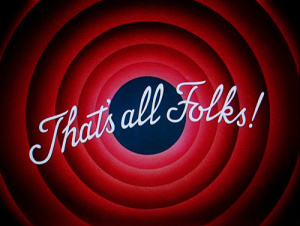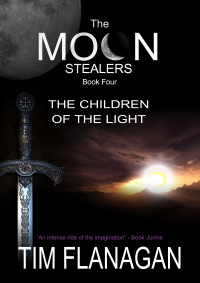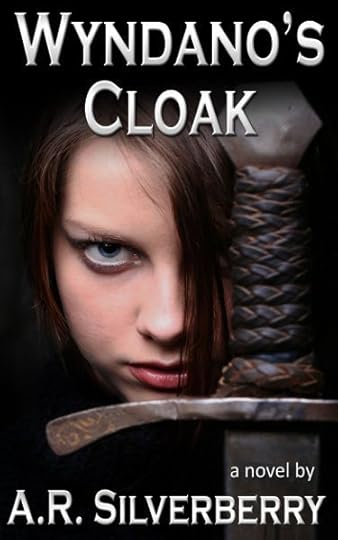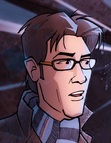Tim Flanagan's Blog, page 17
January 23, 2014
“When It’s Hot” and Making You Hot: An Interview with Erotic Author Emma Lauren

January 20, 2014
Boyd Lemon Squeezes Emotional Juices Into A Fiction Book

January 15, 2014
Some Exposure
Just wanted to give you all a little update. The Moon Stealer series has started the new year strongly in both the UK and US bestseller charts on Amazon, especially in the Dystopian chart.
The Curious Disappearance of Professor Brown was mentioned in our local newspaper:

 And, if you go to London radio station, Magic FM’s Book Club section, you will see an article about eighteen year old Lawrence Pinkley. While you are there, why not enter their competition to win a set of limited edition prints from the book. But you only have until 24th January to enter.
And, if you go to London radio station, Magic FM’s Book Club section, you will see an article about eighteen year old Lawrence Pinkley. While you are there, why not enter their competition to win a set of limited edition prints from the book. But you only have until 24th January to enter.
http://www.magic.co.uk/whats-on/book-club-tim-flanagan-professor-brown
GOOD LUCK!
January 11, 2014
“Leading The Way,” Sayeth the Book Gods, “Erotica Evolved with Author Rigel Madsong”
 Interesting interview by Nick Wale at Novel Reads, includes some good advice for authors starting out, as well as advice on marketing. Enjoy!
Interesting interview by Nick Wale at Novel Reads, includes some good advice for authors starting out, as well as advice on marketing. Enjoy!Rigel Madsong is an enigma. A writer of erotica who has raised the benchmark for all writers of all genres. Rigel is what I would call a “writers writer,” the kind of writer you look up to and learn from. When I first met Rigel, I was amazed by his drive and ambition. A book is only as good as the writer writing it. Rigel Madsong is as good as a writer gets. “The Taste of a Woman” is classy, erotic to the core and has those wonderful, sticky pages that keep you reading over and over again.
I know everyone is telling you their book is “amazing,” but Rigel Madsong really is a cut above. Get “The Taste of a Woman,” and if it doesn’t turn you on, let me know… I want to know what’s wrong with you.
Q) Rigel, as an erotic author I have to ask– what is erotic to you?
A) Whatever turns me on. I know that it’s different for different folk. For me it has to have an element of beauty to it, if only in the harsh truth it reveals. But also risking something against the impositions of society to suppress what is natural about our emotional core. Like poetry, erotic literature is about the body. You take it in through the eyes and brain, but you feel it throughout the extent of your physical being. That’s what makes it so exciting. In images I look for something spiritual, something that knocks my socks off. I don’t have to explain it to myself. If it’s right, I respond with my intellect nodding its head and emotions churning.
Q) Do you, as a writer and as a reader, believe the erotic book world needs more literature and less fluff?
A) Absolutely! Erotic literature has at its command perhaps the most precious moment of any human life: intimacy. This little treasure has to be treated with complete respect, bringing the best we have to offer in the way of literary training, psychological insight, astonishing imagery, the music of well chosen words. . . I could go on. The main point is, when given a gift make the effort worth it!
Q) How do you like to write? Are you a daytime writer? A coffee slurping morning writer or a late night typer?
A) I write all the time. If not at my desk. then in my head. If not there. then in my unconscious. When I start a piece–maybe only a few sentences to lock in the entry point–when I return a few hours later, three or four paragraphs hit the page almost instantly, indicating that my unconscious has been at work. This means I put words on the page whenever, between tasks of the day, late at night when the house is quiet, riding on a train. . . once bitten by the bug, the machine is in the on switch position with cylinders popping.
Q) How did you approach the idea of writing an erotic novel? Was it at all threatening for you?
A) Not threatening, exciting. I jumped at the chance. Writers always have to overcome their inhibitions to write anything worth a damn. If it’s not dangerous, then there’s no guts to it. That’s why it has to be taken seriously, but always courageously. If the writer doesn’t put him/herself on the page, spill the guts without being solipsistic about it, then there’s no bloodshed. Blood on the page makes for great stories.
Q) Of all the characters in “The Taste of a Woman,” who is your favorite and why?
A) Oh, my God! I love them all in their own way: the jazz bassman boppin’ his way through a sweet sexual encounter; poor Allye, so inhibited, finally finding a path to her own sensuality; the comic fellow who thought he had lost his MoJo only to find it with the help of his deceased best friend’s turned-on wife. I get excited just talking about these folks.
Q) Which nicely leads me to my next question! One of the stories in “The Taste of a Woman” is based around a jazz combo. Are you a jazz listener, and if so, did your interest in jazz music influence the story?
A) Absolutely! Listener and player. I love what jazz does to bring rhythm, intellect and the body together in one place. It was a natural for me to create the jazz-bass character and speak through his mouth, even to the point of expressing his humility, his shock at being in the focal point of a sexual triangle, all the time wailing out on his axe. Every experience I have had in my life informs my writing. Inspiration comes partly from fantasy and partly from the experience of knowing what comes from leading a full life.
Q) Where do you get your ideas from? Do you base them on things you’ve actually tried yourself, things you’ve heard your friends talk about, or just stuff you’ve thought up yourself?
A) All of the above and more. The writer always has his/her antennae up. Always listening. Always paying attention. Eudora Welty said that the saddest thing about losing her hearing was that she could no longer eavesdrop. My ideas are collected as they arrive through my antennae—things that fascinate me, hearing a conversation on a bus, picking up on someone else’s desire/dreams, spinning off from an image I find that evokes erotic feelings, people I know who have hang-ups that need fixing, failures of my own at love and the fantasies I have had to try and fix them.
Q) What did you get out of writing “The Taste of a Woman?” What really satisfied you about inking these stories?
A) Everytime I write I go deeper in to my consciousness. The writer better damn well be willing to examine his/her own life or the writing pales. What that does is to expand the narrow world we live in to incorporate a broader terrain of that great gift of consciousness we are given. I am a deeper person for having become a writer, mostly, I believe, because it calls you to lead the examined life. That’s a long way of saying I got a lot out of writing The Taste Of A Woman. As for satisfaction: Yeats said something about the sensation one has reaching the perfect end of a story you are writing as being like the click at the closing of a box. That “click” is worth more than publication, prizes, notoriety, financial explosions. . . at two o’ clock in the morning after writing long hours when you are so into it you don’t feel the passing of time, it’s actually pretty close to orgasm.
Q) Rigel, did you ever believe you would be writing an erotic novel?
A) I’ve learned not to limit my beliefs. Otherwise, I would never have done half the crazy things I‘ve done in my life, loving them each and all.
Q) How have reviews been for “The Taste of a Woman” so far?
A) Astonishingly good. Fabulous. All 5-Star so far. I mean, I felt I was writing good stuff, stories that had the possibility of connecting with other folk, diving into their sexual wheelhouse, if you will. But I have to say I didn’t expect it to be this good.
Q) How do you approach marketing? Do you think marketing an erotic novel is easier, than say, a thriller?
A) I approach marketing by finding someone who knows what the hell they’re doing. You don’t want a watchmaker doing your brain surgery, good as he may be with his hands. My guess is that even if the book has something of a hook to it, even if it is the best damn book ever written, it still has to be pushed to get anyone’s attention.
Q) What really makes you excited about writing? Do you believe it’s possible for an Indie author to become a bestseller?
A) Totally possible. Been done. It would seem the tide is turning. Large publishing houses with all their power are like large ships in a complicated harbor. Indie houses are finding intelligent, smart ways of making their produce available. The Internet is playing a HUGE role in the process, so much so that one would be foolish to ignore it.
Q) Can you describe “The Taste of a Woman” in two sentences?
A) I’ll unabashedly do it in one sentence fragment: Great literature with a smart sensual core to it.
GET YOUR COPY OF “THE TASTE OF A WOMAN” TODAY!


January 6, 2014
New Year – New Plans!
 Goodbye 2013…
Goodbye 2013…Well, last year was a busy one for me, I released 3 books: the final two pieces of the Moon Stealer quartet, as well as the first book in a new series featuring teen detective Lawrence Pinkley, with illustrations by the brilliant Dylan Gibson. Just in case you missed them:
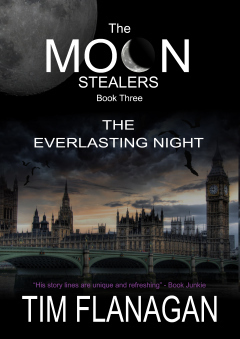
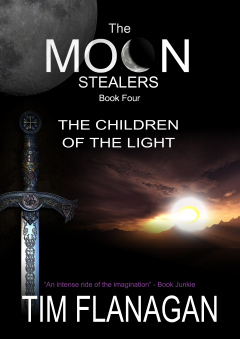
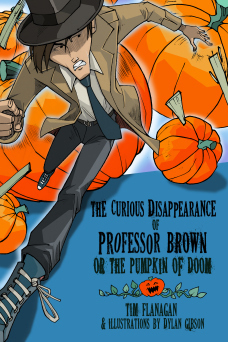 But this year is going to be even busier!
But this year is going to be even busier!I’m sorry I’ve been quiet on the blog for the past month, but I have had a little rest to recharge my batteries, remind my family who I am and enjoy the festive season with them. But, now I’m back and I have many exciting projects planned for the year ahead.
Hello 2014…
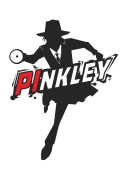 At the end of January a collection of short stories will be released that also feature Lawrence Pinkley with more illustrations by Dylan.
At the end of January a collection of short stories will be released that also feature Lawrence Pinkley with more illustrations by Dylan.
If you are a fan of Pinkley’s humorous adventures, you will be pleased to know that I am currently talking with Dylan about a second book which I am aiming to release in December. Plus, I will probably write another few short stories featuring him too!
 April see’s the release of the Author’s Marketing Yearbook 2014 – the definitive resource book for authors, writers and publishers. It contains marketing information you won’t find anywhere else, together with hundreds of internet links and websites to make marketing easier and more productive. The Yearbook will be updated every year. If you haven’t visited the accompanying website that goes with the Yearbook, pop over and have a look. I trawl the internet every week to find all the relevant information that authors can use to promote themselves.
April see’s the release of the Author’s Marketing Yearbook 2014 – the definitive resource book for authors, writers and publishers. It contains marketing information you won’t find anywhere else, together with hundreds of internet links and websites to make marketing easier and more productive. The Yearbook will be updated every year. If you haven’t visited the accompanying website that goes with the Yearbook, pop over and have a look. I trawl the internet every week to find all the relevant information that authors can use to promote themselves.
Hopefully around July / Aug, I will be releasing a brand new book – Doctor Gabriel Grey, The Finest Dragon Slayer in Westminster. The book is set in London in the 1600′s when there was great division between the rich of Westminster and the poor within the City of London. And of course, there are some Dragons! I will be sharing the first chapter of this book as some point in the future, so keep your eyes open.
At the end of the year, an omnibus edition of all four Moon Stealer books will also be released containing additional information and maps to go with the story that weren’t in the originals.
So, there you go – that’s what I have in store for you all this year. Lots of exciting projects, some of which I have already started.


December 10, 2013
How to: Draw. 3 x Videos
 It’s always interesting to see how other people work. Dylan Gibson, the illustrator for my latest book, The Curious Disappearance of Professor Brown, has filmed three short videos showing you how he draws some of the characters from the book.
It’s always interesting to see how other people work. Dylan Gibson, the illustrator for my latest book, The Curious Disappearance of Professor Brown, has filmed three short videos showing you how he draws some of the characters from the book.If you missed the previous two, here they are again:
The Curious Disappearance of Professor Brown
by Tim Flanagan and illustrations by Dylan Gibson
Available in Kindle and Paperback at Amazon


December 6, 2013
More Interviews and another new book!

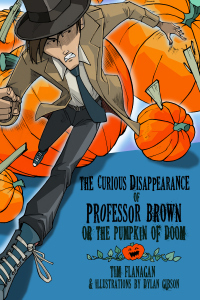 Two more interviews this week:
Two more interviews this week:Have a look at Krista Rausin’s blog or download Nick Wale’s e-zine, Novel Reads, from Amazon. Novel Reads also has interviews with other great authors and makes for an interesting read.
The Curious Disappearance of Professor Brown
by Tim Flanagan and illustrations by Dylan Gibson
Available in Kindle and Paperback at Amazon
Also this week…
The fourth and final book in the Moon Stealer series is also now available in Kindle and Paperback from Amazon.
The Moon Stealers and the Children of the Light
And, the first review is in….
The Moon Stealers and The Children of the Light is the epic conclusion that the reading audience has been waiting for and expecting from Tim Flanagan.
If you haven’t read this series yet, I have to ask why not? If you have and have been wondering how it would end, you will not be disappointed! I love that adult or child, each played an intricate roll in the saving of humanity. It teaches adults and children a valuable lesson: you don’t have to be an adult to do important things.
As I read this book, I was drawn in by the fabulous storytelling. The descriptions were full bodied without being overly wordy, and as the reader, I could see what was being described. It is not an easy thing for an author to write in such a way that the reader feels as if they are watching the scenes play out before them, but Tim Flanagan does this with what seems like ease.
This series was incredible to begin with, and the ending leaves you with a feeling of sweet satisfaction that only the best books can evoke from the reader. The only thing that you might be upset with is that this is the end of a heart thumping ride. Bravo to Tim Flanagan and his latest creation! 5 Stars!


December 3, 2013
Unblock Writer’s Block – Guest Post by A R Silverberry

What the heck is writer’s block, anyway? And what can you do about it? Here’s what I’ve come up with. First off, the term writer’s block is too vague. It specifies nothing but the symptoms, nothing about the cause. It’s like saying you’re ill, suffering from soar throat, cough, and fever. But what’s the cause? A cold? Flu? Strep?
Same thing with writer’s block. All we can say is that the words are not flowing from brain to page. But what’s the cause? Until you can answer that question, you won’t know how to, ahem, cure the disease! Here’s a short list of some possible causes:
Procrastination
Fear of failure
A harsh, critical inner critic
A lack of ideas
A lack of time and space
The story isn’t ripe.
These problems can occur simultaneously, but let’s look at each separately, and see what the solutions might look like.
A Lack of Time and Space. Suit up and show up! Commit to a regular writing schedule. Write in a regular place, which then becomes a trigger for your words to flow. This can be anywhere. I wrote my novel, Wyndano’s Cloak, while commuting on a train! If the goal of writing a quota of words stifles you, choose an amount of time you’ll write. When your time is up, no matter where you are, make a note of what you want to do next and stop. You’ll be itching to get back to it!
Procrastination. I don’t believe there’s a lazy gene. Ditto lazy people. There is only ineffective behavior. Personality is hard to change. Behavior isn’t. When people procrastinate, they often anticipate something will be hard or unpleasant. (Think about doing your taxes!) The problem is that we’re often poor predictors. When we’re procrastinating, we’re usually predicting the avoided task will be less fun than something else, or will be more difficult. Two things you can do:
a) Grandmother’s Rule: Eat your dinner before your desert. In other words, write first, no matter how it comes out, and then do the thing you would have procrastinated with afterward. The second, preferred activity reinforces the first!
b) Test your assumptions; fill out an Anti-Procrastination Sheet. Space doesn’t allow me to describe it here, but you can find it in David Burns’ famous book, Feeling Good.
Ideas not Flowing. Try speed writing, without consideration for what comes out. Try stream-of-consciousness writing, without consideration for punctuation. Here’s a favorite of mine: write in a different document, someplace away from what you’re working on, someplace that doesn’t matter. I do this in a journal, or in a document I call Sketchpad. My father—a screenwriter and playwright—did it on a paper bag or the margin of a used piece of paper. Once he came home with a poem on a napkin!
Another reason why ideas might not be flowing is there’s a lack of sufficient stimulation. Stock the idea pond. Go on what Julia Cameron calls an artist’s date (see her book, The Artist’s Way). You’ll be surprised how quickly your mind starts making connections between your story and what you’re seeing.
Ideas might not be flowing because you need something concrete as a starting point. I always have photos of my main characters and most of my settings to spur my imagination.
Stimulate your creativity. Challenge yourself to come up with twenty ideas, without judging them. Try merging these ideas, or vary them. Add something smaller. Add something bigger (think of chocolate chunks instead of chips in cookies or ice cream!). Close your eyes, open the dictionary at random, run your finger down the page, and stop. Brain storm how the word you’re on might relate to your story. I did this with a middle school class, with amazing results. It’s like being dropped in an unfamiliar part of town. You always find your way home! (Method and analogy courtesy of creativity pioneer, Edward De Bono.)
The story isn’t ripe. Ideas might not be flowing because the story isn’t ripe. The characters may not be sufficiently developed. The theme may be unclear, or there are too many of them. The plot may be mired somewhere in the great unknown of the middle. Try developing these areas. If that fails, let it incubate. Work on another section, or set the whole thing aside and write something else. Some stories take years to ripen. Larry McMurtry took a vacation from Lonesome Dove to write Desert Rose!
Inner Critic. The inner critic is one of the wettest blankets we can throw on our creativity. The critic is all left brain, and when you’re trying to be creative you need to be more in your right brain, drawing on your imagination and the pictures in your mind. Try talking back to the critic, but not harshly. An easy going, “Hi! I see you, I hear you, but I’m going to focus on this right now. I’ll get back to you later when I’m revising,” helps! As does mindfulness: “Those thoughts are just fish in an aquarium, and no more significant. They’ll pass.” Humor helps: “Oh, pipe down you wascally wabbit!” said in the most Elmer Fuddish voice you can.
Fear of Failure. Depending on the severity, fear of failure may be one of the more difficulty problems to tackle. Try writing down your fears. Ask yourself what is the worst that can happen, and if that thing happened, why would it be so bad? Ask yourself how likely that outcome is? Ask yourself what is the evidence for your fears, and what evidence you can think of to the contrary. Try replacing your fear thoughts with more realistic thoughts. How much do you believe the new thoughts? If you believe them, you should feel less fearful. If not, talk to a trusted friend or relative, and get some perspective. If all else fails, consider working with a therapist to help move you forward. It worked for Rachmaninofff. After seeing a hypnotist to overcome writer’s block, he penned his famous Second Piano Concerto, one of his greatest works!
You may notice other causes for writer’s block. Follow the steps above. Identify the root of the problem. Devise a solution. For most people though, simply sitting and starting will do the trick. Just write. Do it daily. The story is inside of you. Get out of its way and let it flow.
A. R. Silverberry has won a dozen awards, including Gold Medal Winner in the 2011 Benjamin Franklin Awards for Juvenile/Young Adult Fiction; Gold Medal Winner in the 2010 Readers Favorite Awards for Preteen Fiction; and Silver Medal Winner 2011 in the Bill Fisher Award for Best First Book, Children’s/Young Adult. He lives in California, where the majestic coastline, trees, and mountains inspire his writing. Wyndano’s Cloak is his first novel.
Jen has settled into a peaceful life when a terrifying event awakens old fears—of being homeless and alone, of a danger horrible enough to destroy her family and shatter her world forever.
She is certain that Naryfel, a shadowy figure from her past, has returned and is concentrating the full force of her hate on Jen’s family. But how will she strike? A knife in the dark? An attack from her legions? Or with the dark arts and twisted creatures she commands with sinister cunning.
Wyndano’s Cloak may be Jen’s only hope. If she’s got what it takes to use it . . .
Purchase limited edition hardback from A. R. Silverberry


Round up of the week so far
 This week Mr Lawrence Pinkley, the reluctant detective from The Curious Disappearance of Professor Brown, is on the move again.
This week Mr Lawrence Pinkley, the reluctant detective from The Curious Disappearance of Professor Brown, is on the move again.On Monday 2nd December I wrote a guest post on Jennifer Loiske’s blog about why I find writing for young people more liberating than writing for adults.
Today, Tuesday 3rd December, Carol Bond’s blog has a short Christmas themed story featuring Mr Pinkley called The Mystery of the Purple Christmas Goose!
Don’t forget to get your copy of Novel Reads by Nick Wale’s Novel Ideas group. It is released on 5th December. Inside is an interview Nick conducted with me.
The Curious Disappearance of Professor Brown
by Tim Flanagan and illustrations by Dylan Gibson
Available in Kindle and Paperback at Amazon


November 29, 2013
Why I Write for Teenagers
 Why do we write for certain audiences? In this guest post on A R Silverberry’s website, I talk about what made me want to write for a younger audience.
Why do we write for certain audiences? In this guest post on A R Silverberry’s website, I talk about what made me want to write for a younger audience.The Curious Disappearance of Professor Brown
by Tim Flanagan and illustrations by Dylan Gibson
Available in Kindle and paperback at Amazon






